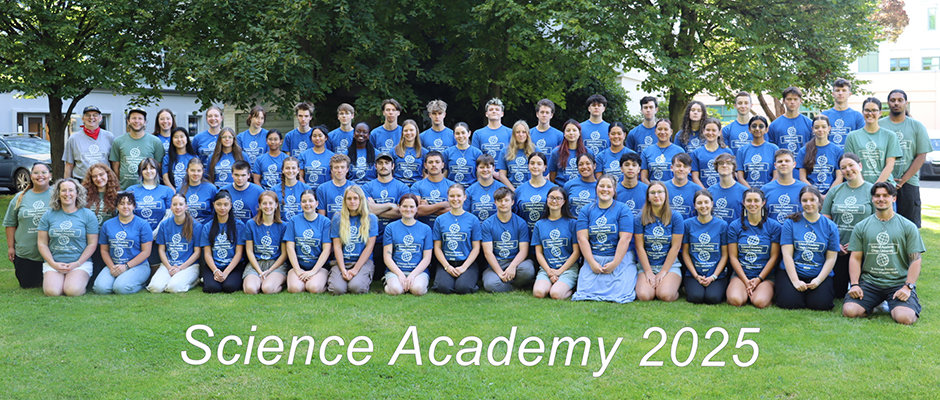2025 Science Academy cohort

Our 2025 student cohort comprises 58 potentially high-achieving Year 13 Science students from all over rural/provincial, small and/or lower decile across New Zealand.
The students will attend two science camps (January and July), at the University's Dunedin campus. Between January and July camps, they work in teams on a science communication project which involves preparing a short film, podcast, public talk, or museum display talk that will be showcased to a public audience as part of the NZ International Science Festival at the end of the July camp.
Following the July camp our students are supported in their run-up to NCEA/Scholarship External exams in November with 10 weekly on-line tutorials on Biology, Chemistry and Physics with a focus on how to achieve excellence.
“Great Experience! Bring on the next camp!”
Our 2025 Summer camp ran from 21–26 January and involved the usual packed programme of morning seminars, two-day projects, short electives, science communication workshops and free-time options.
The morning seminars addressed topics such as:
- The Energy Transition and the Path to Net Zero
- Bones of Contention: A journey into Forensic Anthropology
- Transdisciplinary Science Approaches to Infectious Diseases
Two-day projects are divided into two streams with students choosing one option from each stream.
Project stream A
- Applied Mathematics and Statistics
- Chemistry
- Anatomy and Physiology
- Marine Science
Project stream B
- Genetics
- Physics
- Sport and Exercise Science
- Computer Studies
- Zoology
See our Projects page for details
In addition, our students choose a short 3-hour elective on a topic not normally covered as part of the school curriculum.
This year for the January camp we offered:
- Agricultural Science
- Archaeology
- Botany
- Pharmacology
- Psychology
- Quantum Physics
- Surveying
Students get a 3-hour break from 3–6pm during which they can sign up for fun activities around Dunedin or relax at the accommodation.
Science communication workshops
An introduction to some basic science communication skills is a key component of the Science Academy and these are covered during evening interactive workshops from 7:00–8:30pm.
Students choose from one of four science communication streams:
- Interpretive Science Talks
- Science Radio Podcasting
- Introduction to Science Filmmaking
- Museum Science Communication
Between January and July camps, students work in teams or individually on a project that will be presented to a public audience at the end of the July camp as part of the NZ International Science Festival.
A welcome mid-week break from science involved a wildlife tour followed by a sports afternoon and barbeque at Portobello Domain on the Otago Peninsula.
The students left invigorated and enthused about tackling Year 13 Science and super keen to return in July.
“Was a great opportunity thanks.”
“This experience has been perfect.”